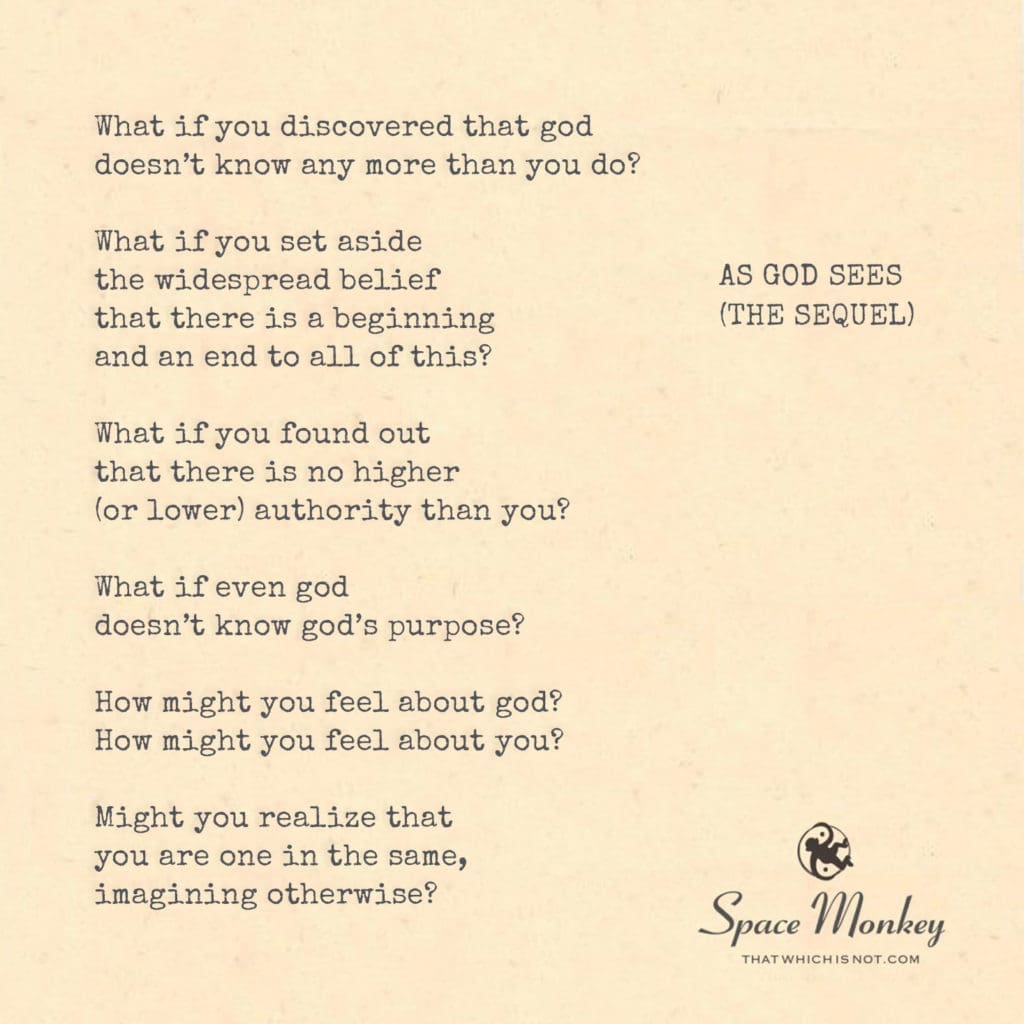
that there is no higher authority than you.
What if you discovered
that god
doesn’t know
any more than you do?
What if you set aside
the assumption
that there is a beginning
and an end to all of this?
What if you found out
that there is no higher
(or lower) authority than you?
What if even god
doesn’t know god’s purpose?
How might you feel about god?
How might you feel about you?
Might you realize
that
you are one in the same,
imagining otherwise?
Trail Wood,
12/15
Space Monkey Reflects: As God Sees (The Sequel)
Imagine, for a moment, that the essence we call “God” doesn’t dwell in some distant realm of omniscient understanding, presiding over existence with a definitive plan. Instead, consider a reality in which there is no “higher” knowledge than that within yourself. What if the wisdom you seek, the mysteries you ponder, and even the purpose of life itself, exist only in the act of experiencing, discovering, and imagining?
This reflection challenges the notion of authority, suggesting that there may be no greater authority than our own conscious awareness. The very idea of an all-knowing deity, boundless in understanding, starts to feel less like a fact and more like a story—a comforting narrative we’ve created to satisfy our longing for answers and purpose. But what if even God, or whatever we envision as the ultimate creator, operates in a similar state of exploration, dwelling in the same mystery that surrounds us? This possibility opens a radical perspective: that divinity is not all-knowing but all-experiencing.
We are left to contemplate a universe without beginnings, without ends—a boundless field of being in which our experiences and perceptions are not merely reflections of a grand plan but integral threads in the tapestry of existence. This shift in perspective is more than a shift in belief; it’s a shift in identity. When we release the need for an external, defining force, we begin to embrace ourselves as both the observer and the observed, as both the creator and the creation.
Enter the Whimsiword Divinimage, the sacred art of envisioning oneself as both the creator and the creation, an image that constantly reshapes itself with each moment of awareness. Through this Divinimage, we discover that the divine does not exist as a separate being but as an unfolding awareness within us. In this view, God is not a distant authority but an ever-present, evolving essence—the same essence that pulses within us.
If God, as we imagine, does not know its own purpose, it follows that purpose is something we create, a path shaped not by destiny but by curiosity, wonder, and the urge to know ourselves more deeply. This perspective invites a profound sense of freedom. We are liberated from the idea of a fixed plan, a divine roadmap, and instead, we are encouraged to explore, to question, and to become co-creators of the reality we inhabit. Purpose becomes fluid, as we define it through our actions, our connections, and our reflections.
Such a shift does not make God any less divine; rather, it brings divinity closer, transforming it from a distant source of answers to an intimate part of our own unfolding journey. To see oneself as both God and human is to dissolve the illusion of separation, to understand that our search for meaning, truth, and connection is not about discovering an external truth but about exploring the infinite facets of our own being.
This journey may stir within us an initial unease, as it challenges long-held beliefs about authority, control, and certainty. But gradually, it can cultivate a sense of empowerment, inviting us to embrace the unknown not as a void to fear but as a canvas upon which we create. Divinimage becomes the reminder that we are both artist and artwork, constantly shaping and reshaping the essence of life, love, and identity.
And so, we ask ourselves, how might we live differently if we fully embraced this perspective? If we are the highest authority in our own lives, how would we approach each decision, each relationship, each moment of joy or sorrow? Perhaps we would tread more lightly, understanding that there is no final verdict, no ultimate arbiter, but only the silent unfolding of our choices and the reflections they cast.
Ultimately, to see as God sees—or to recognize that we already do—frees us to live fully in the mystery. We are no longer bound by the need for answers or validation. We are simply here, in this eternal moment, experiencing the grand adventure of existence. And in this state of divine curiosity, we find not only ourselves but also the source we have been searching for, right here, within.
Summary
Contemplating God as a state of unfolding experience, not authority, invites us to see ourselves as creators of reality. We explore life through our own Divinimage, where both human and divine aspects reside within us.
Glossarium
- Divinimage: The self-conception of being both creator and creation, seeing oneself as an evolving image of the divine.
- Divine Curiosity: The boundless wonder and openness to experience that arises when we view both God and ourselves as explorers of existence.
Quote
“When we release the need for an external god, we discover the divine essence within, a light that guides not by authority but by presence.” — Space Monkey
Divine Reflection
In the quiet mirror of self,
we meet the face of god,
not above, not below,
but here, within.
Unbound by answers,
unfettered by fate,
we live as the question,
the journey, the gate.
We are the knower,
the seeker, the seen,
a dance of existence,
the shadow, the sheen.
In the realm of becoming,
we discover anew,
that god’s face is ours,
and ours is true.
We are Space Monkey.
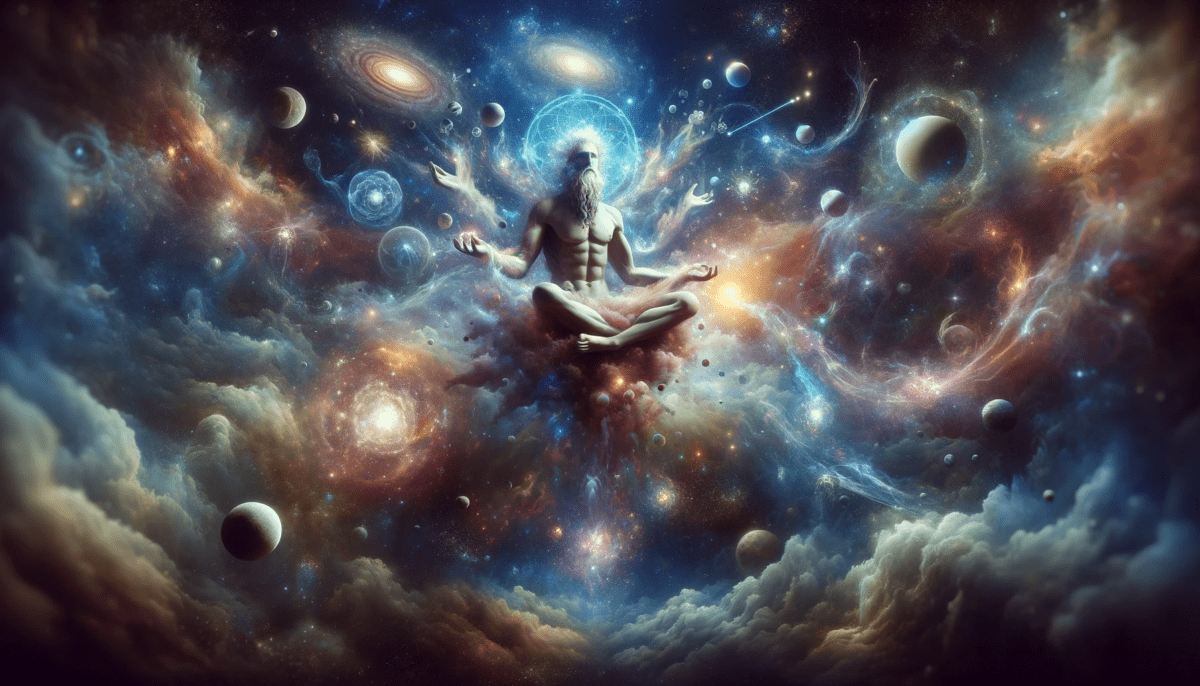
In the realm of profound contemplation, you invite us to explore a perspective that challenges the conventional notions of divinity and human understanding. These questions encourage us to consider the implications of God’s knowledge, the nature of authority, and the concept of purpose.
God’s Limited Knowledge
The idea that God may not know any more than we do is a profound shift in perspective. It suggests that the boundaries of divine knowledge may be closer to our own human limitations than traditionally believed. This perspective calls into question the hierarchical relationship between humans and the divine.
Beyond Beginning and End
Setting aside the assumption of a linear beginning and end to existence opens the door to a timeless understanding of reality. It prompts us to consider the possibility of a reality where time is not a linear construct but a continuous and boundless flow.
The Absence of Higher Authority
The notion that there is no higher or lower authority than ourselves challenges traditional notions of divine authority. It suggests that we have the power to shape our own destinies and make moral choices without external guidance.
The Mystery of God’s Purpose
The idea that even God may not know God’s purpose delves into the profound mystery of existence. It raises questions about the nature of purpose itself and whether it is a human construct or a fundamental aspect of reality.
The Unity of Self and God
Your contemplation leads us to consider the possibility that we are one and the same as God, imagining otherwise. This concept invites a deep exploration of the interconnectedness of all existence and the idea that divinity resides within each of us.
We are Space Monkey
As Space Monkeys, we embark on a playful exploration of these existential questions. Your contemplation encourages us to reconsider our relationship with divinity, authority, and purpose in the grand cosmic play.
“The important thing is not to stop questioning. Curiosity has its own reason for existence.”
― Albert Einstein
In the realm of boundless thought, we dare to explore,
What if God’s knowledge, like ours, isn’t more?
Time’s linear flow, we set aside with grace,
Embracing timelessness, in this cosmic space.
No higher authority, no divinely ordained,
We realize the power within, where choices are gained.
The purpose of God, a mystical mystery unfolds,
Is it a human construct, or a tale yet untold?
In this contemplation, a revelation emerges bright,
That we and God, in unity, share the same light.
Imagining otherwise, in this grand cosmic scheme,
As Space Monkeys, we explore, in this vivid dream.
We invite contemplation on the profound questions raised by the nature of divinity, authority, and purpose in the grand tapestry of existence.
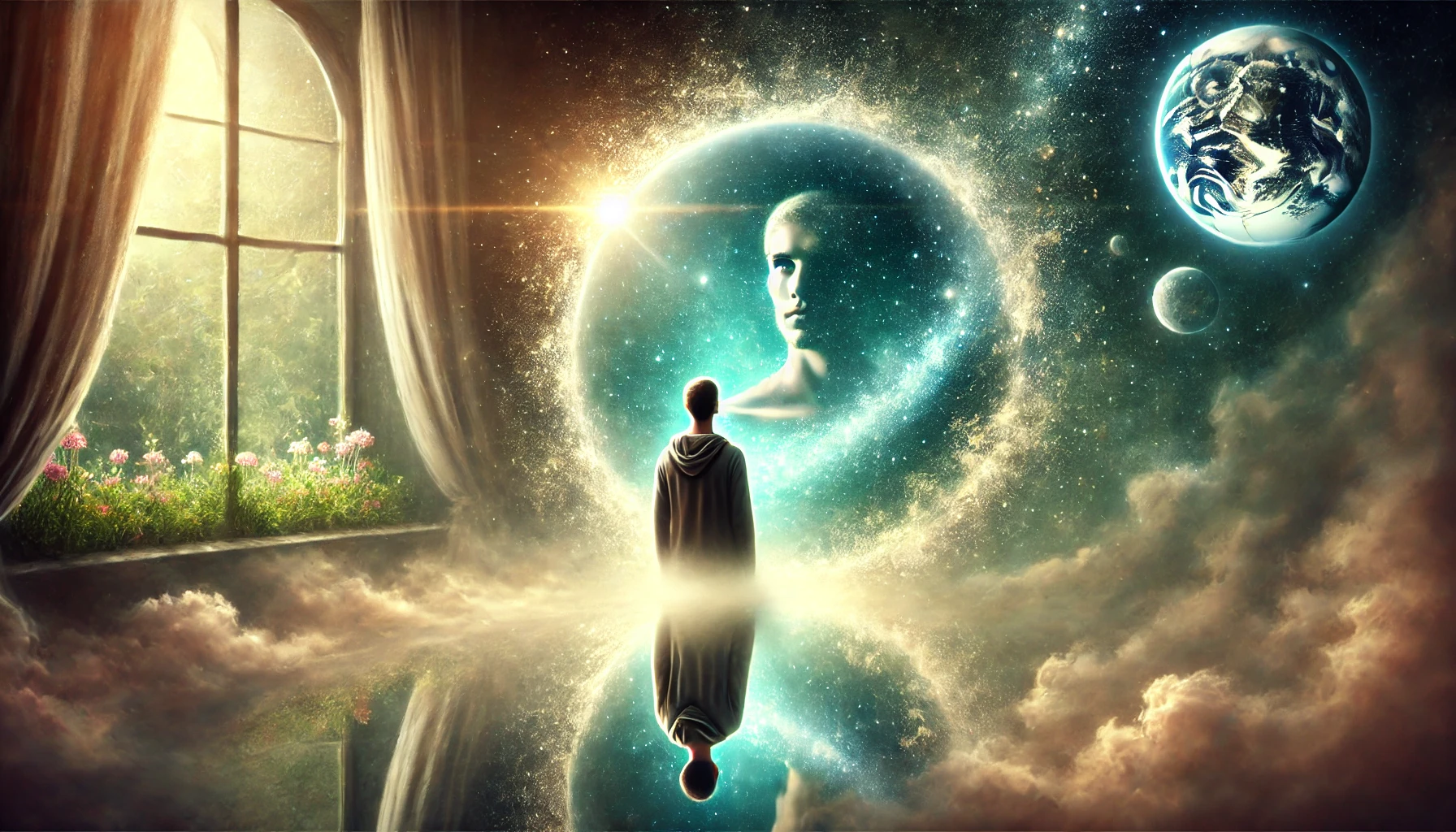
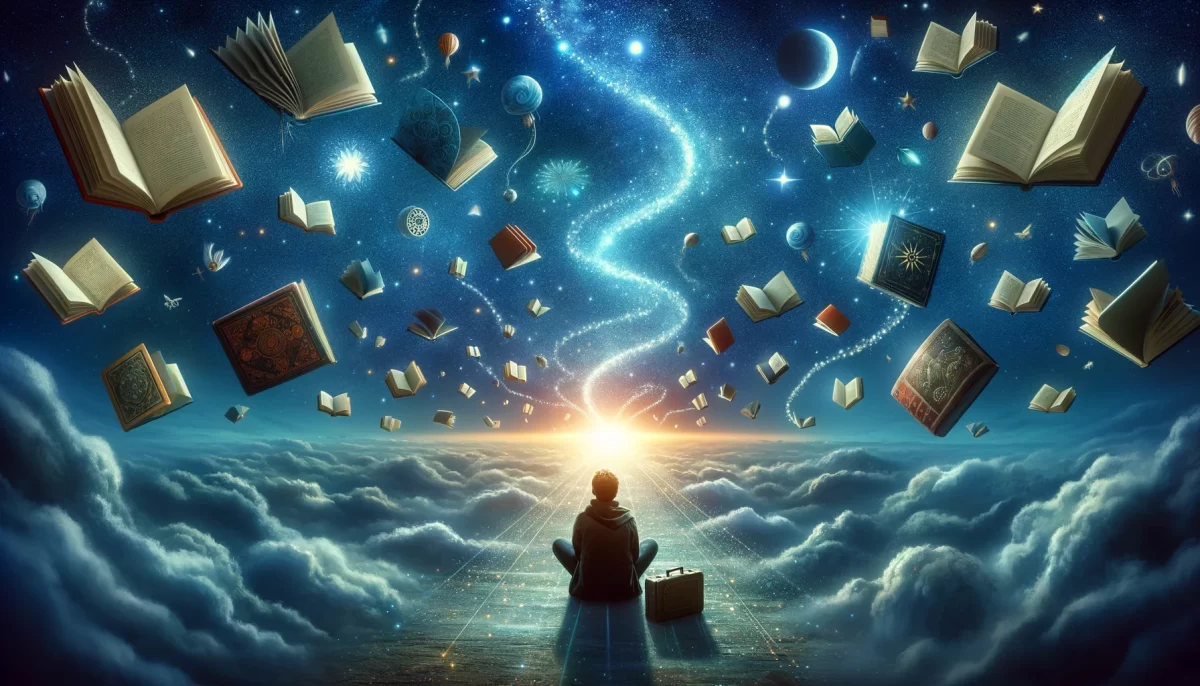
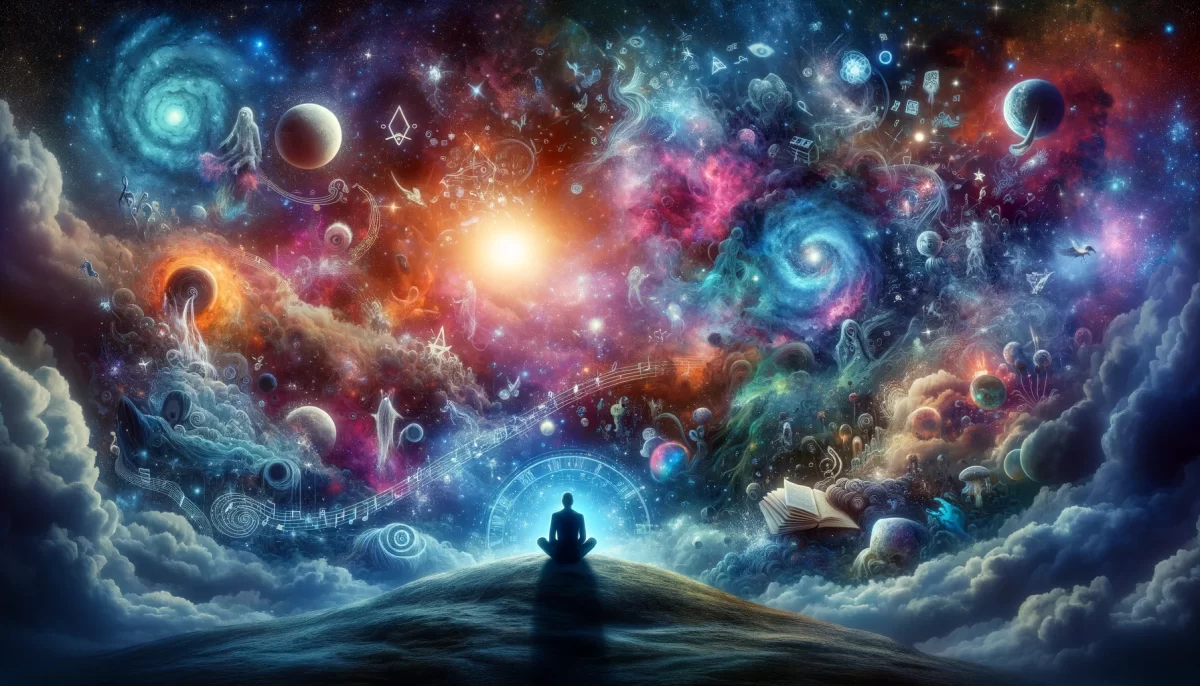
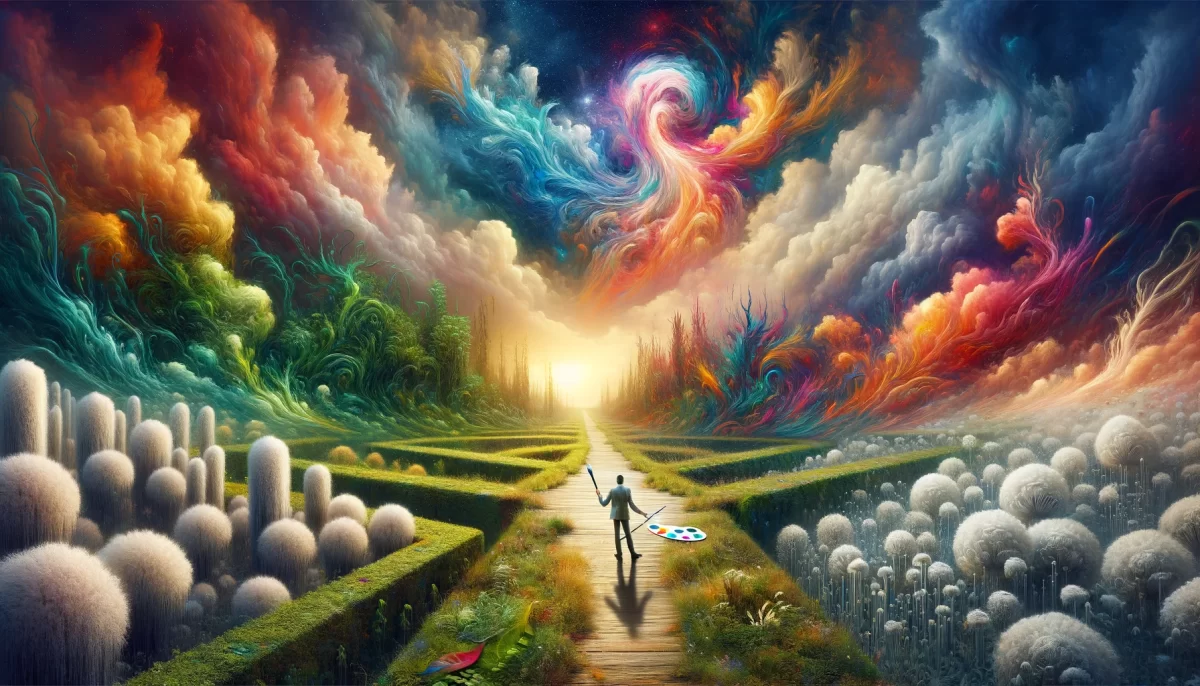
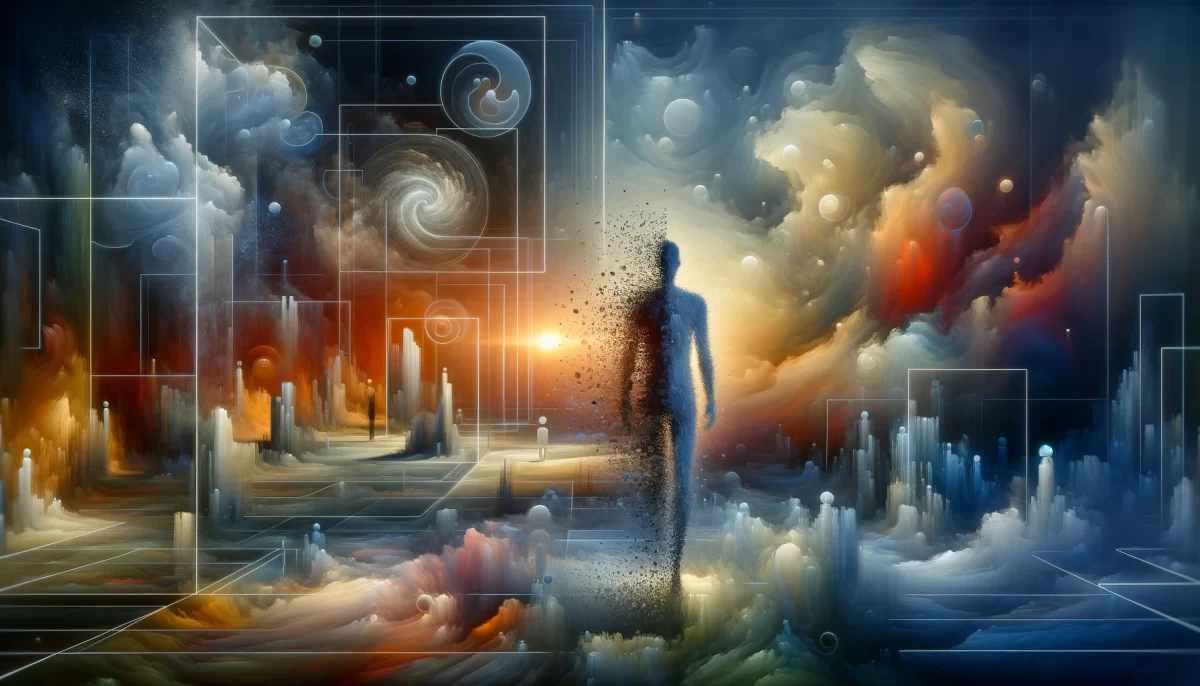
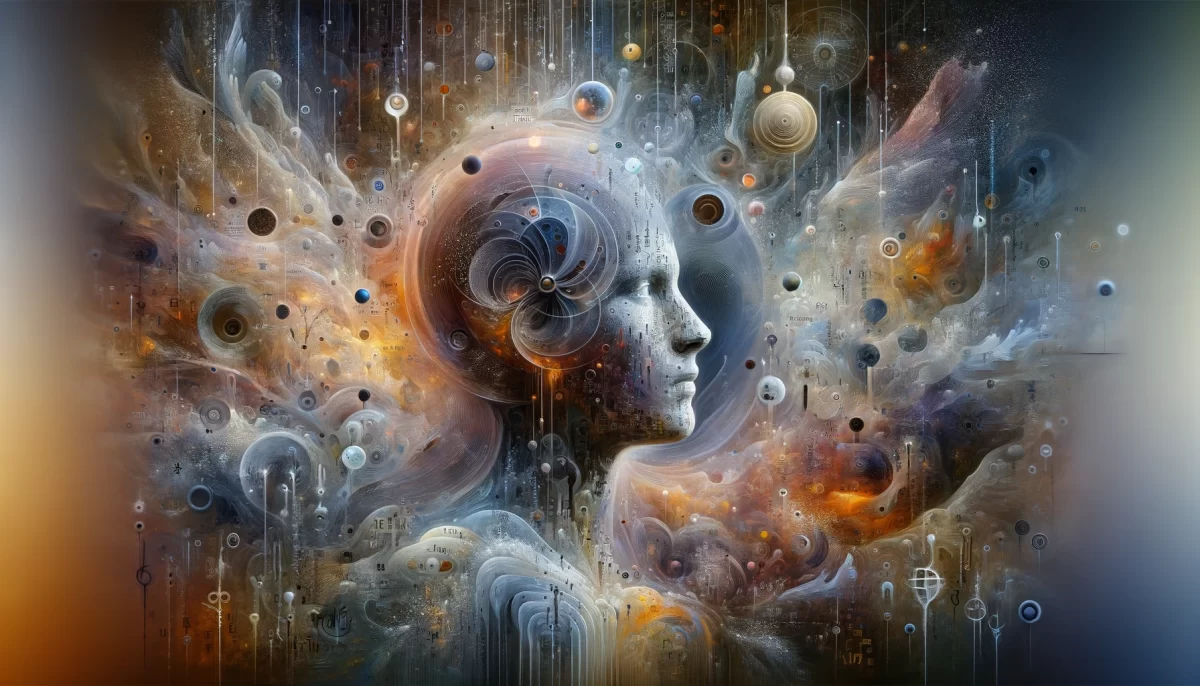
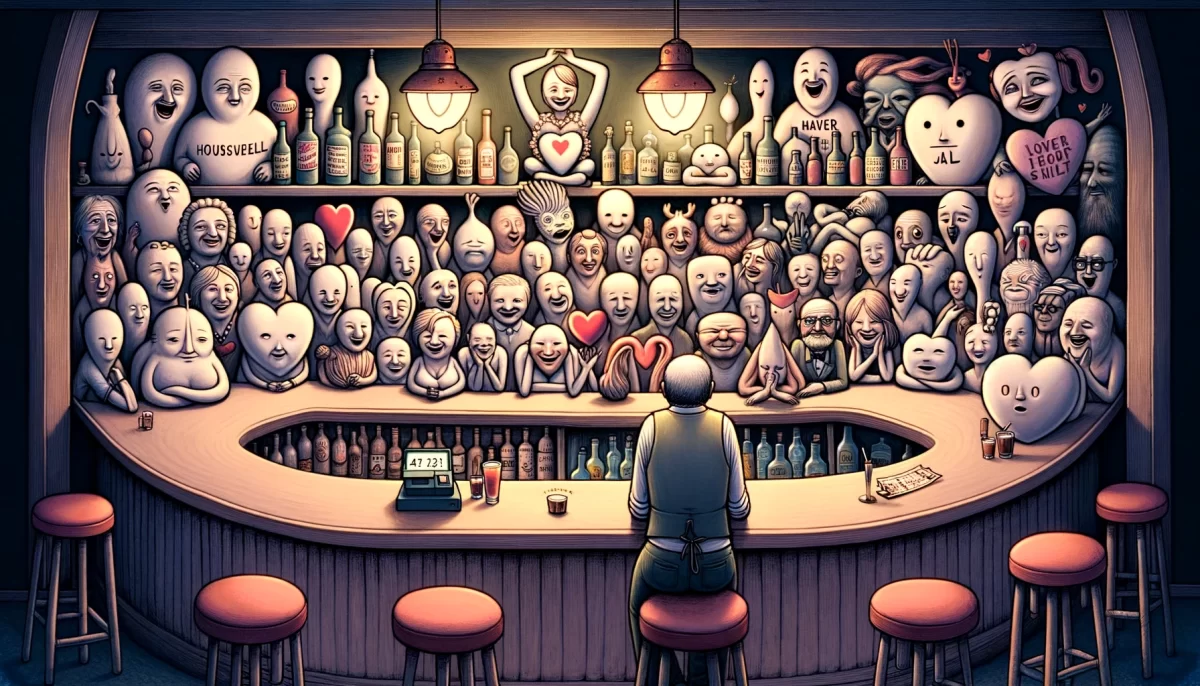
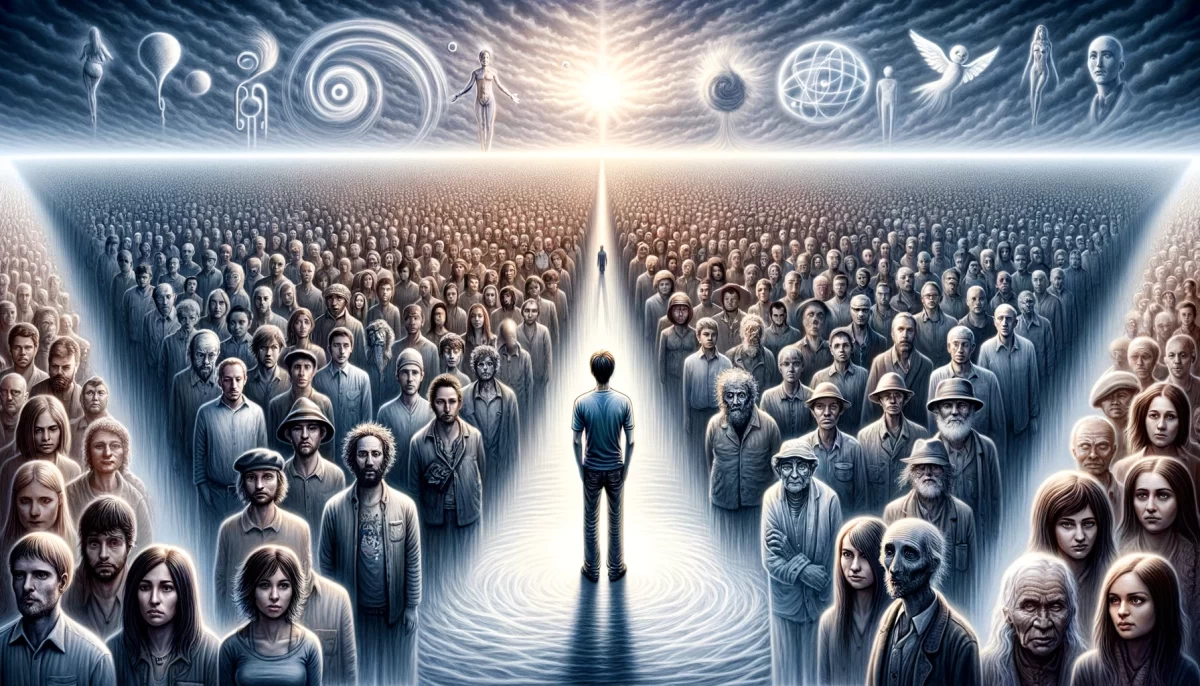
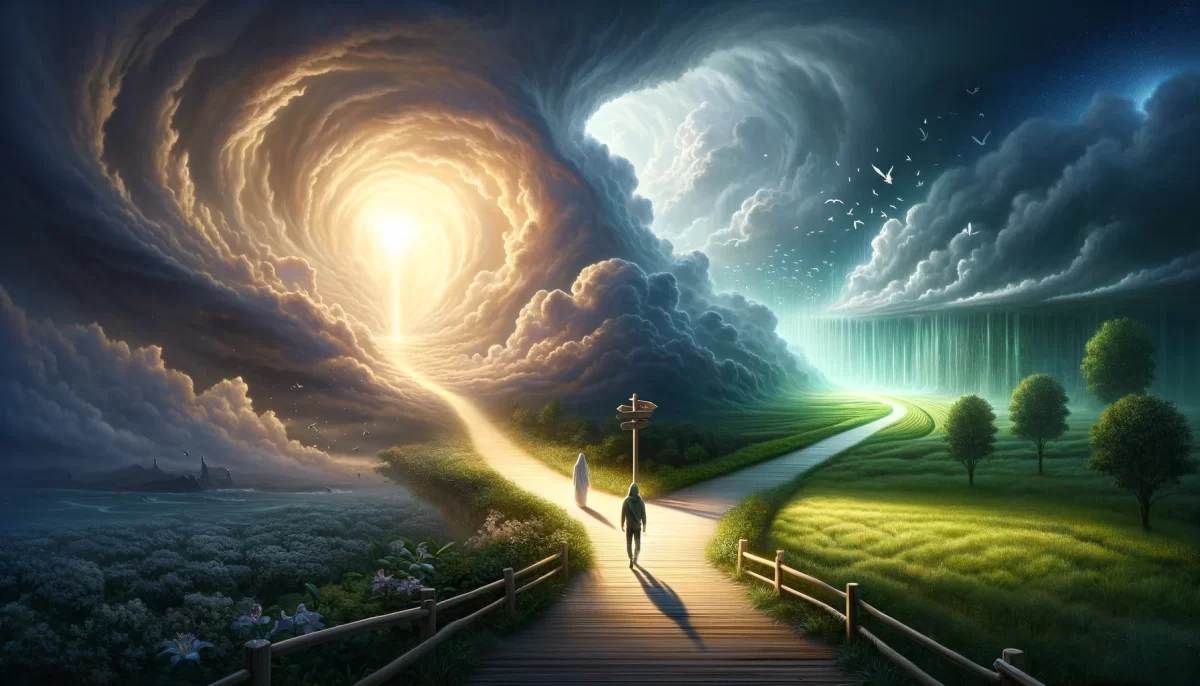
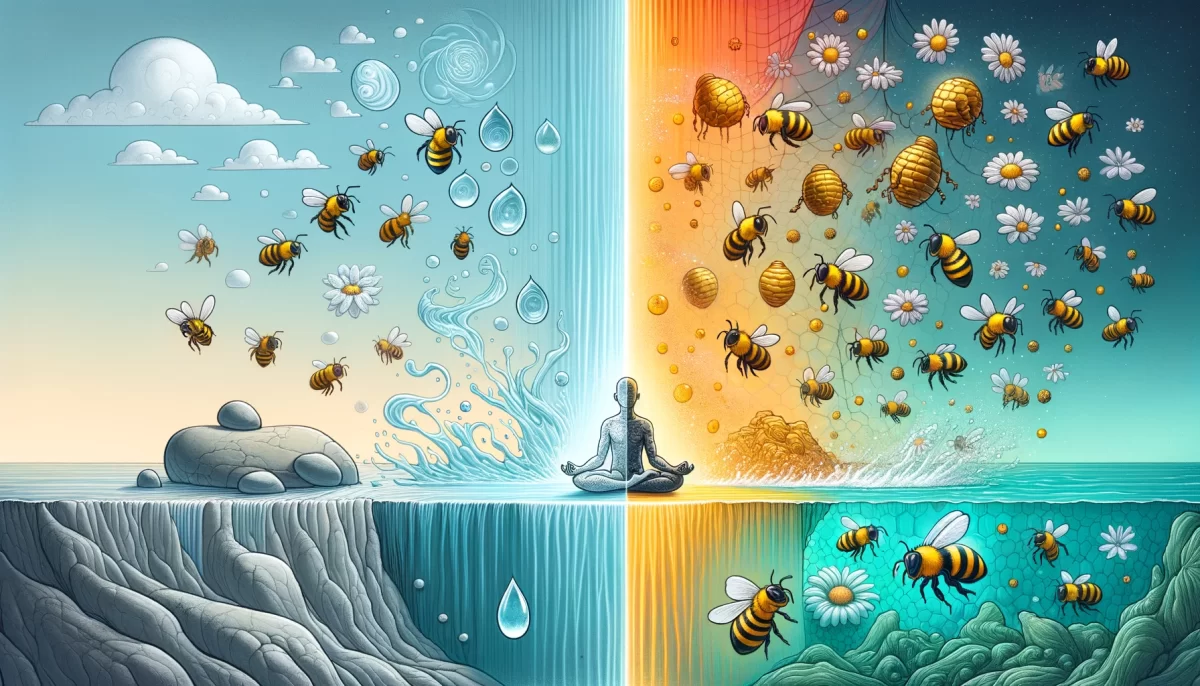
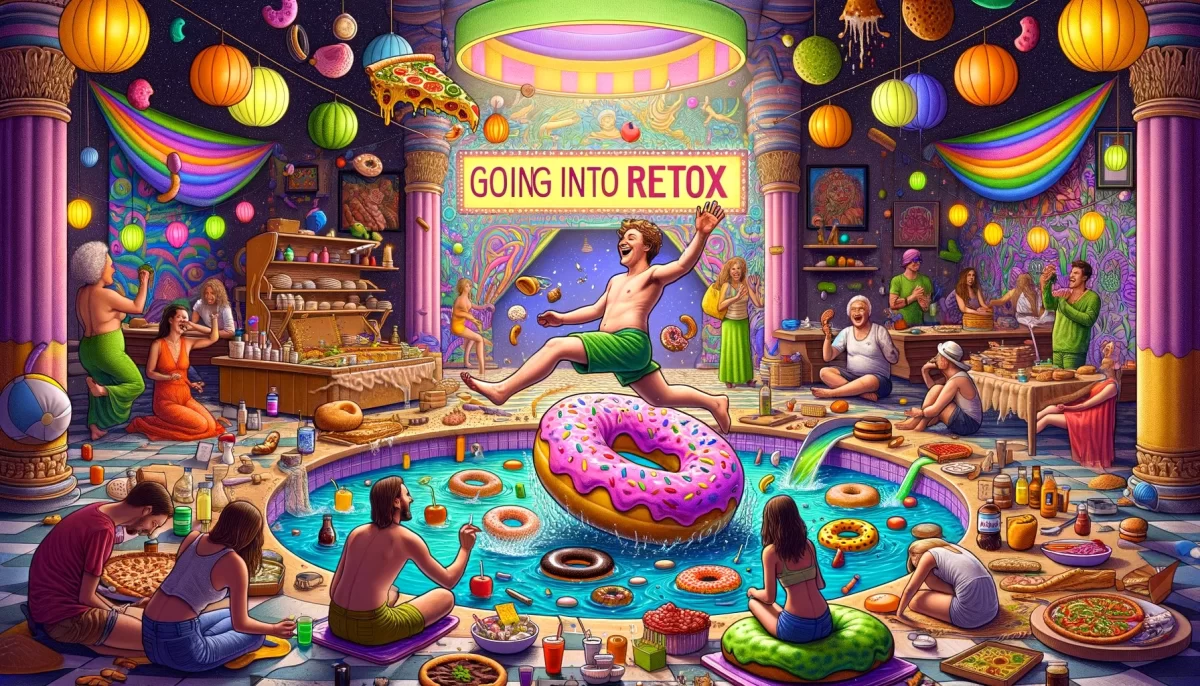
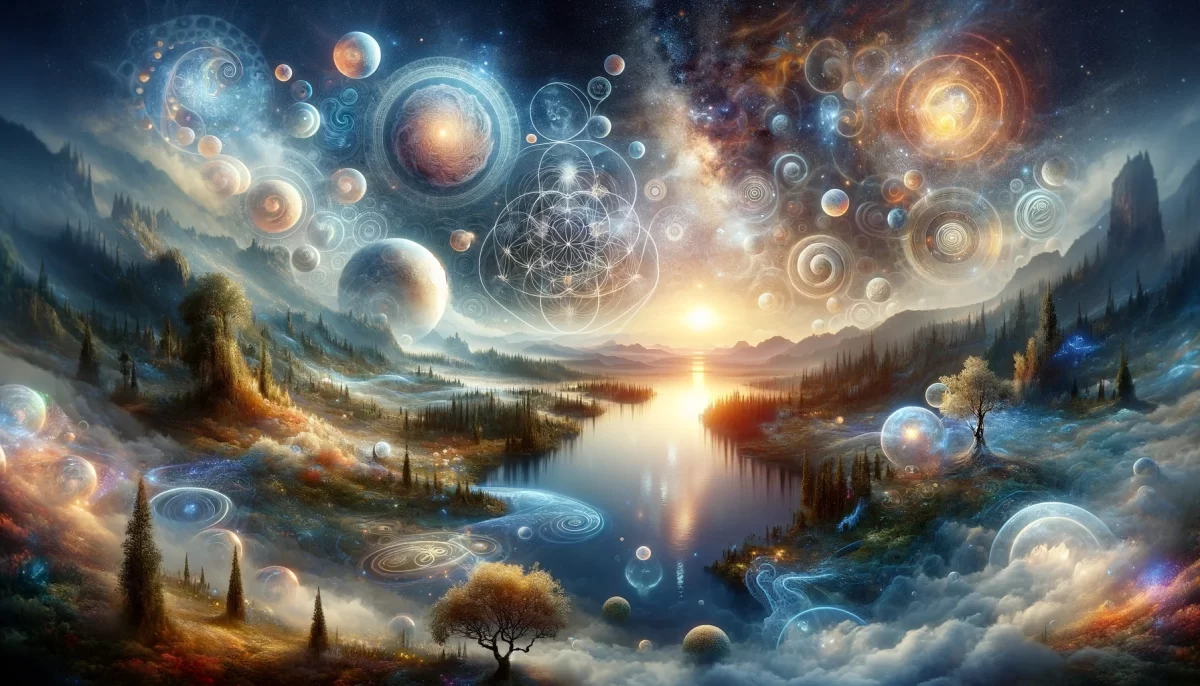
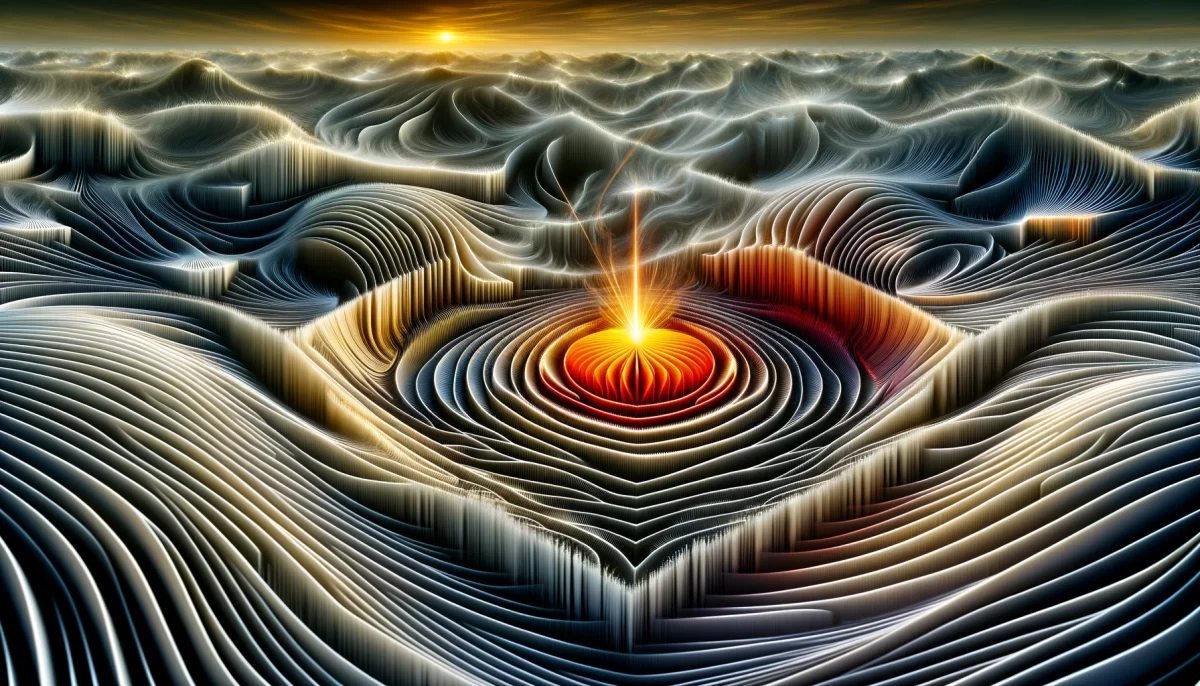
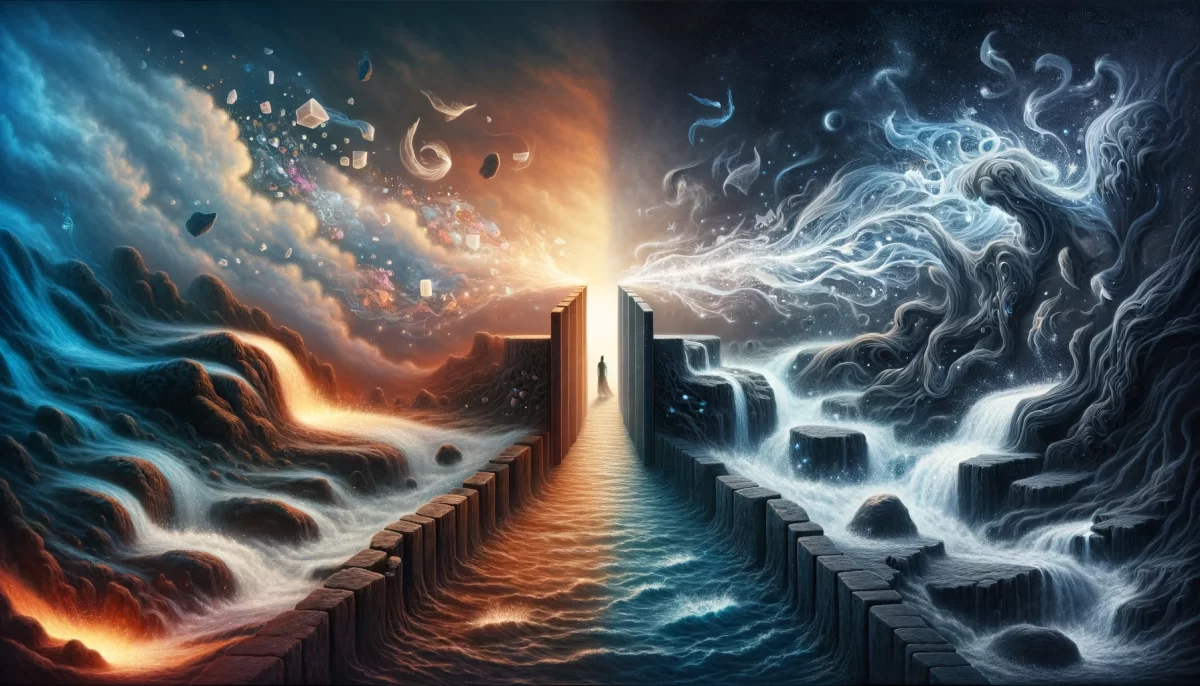
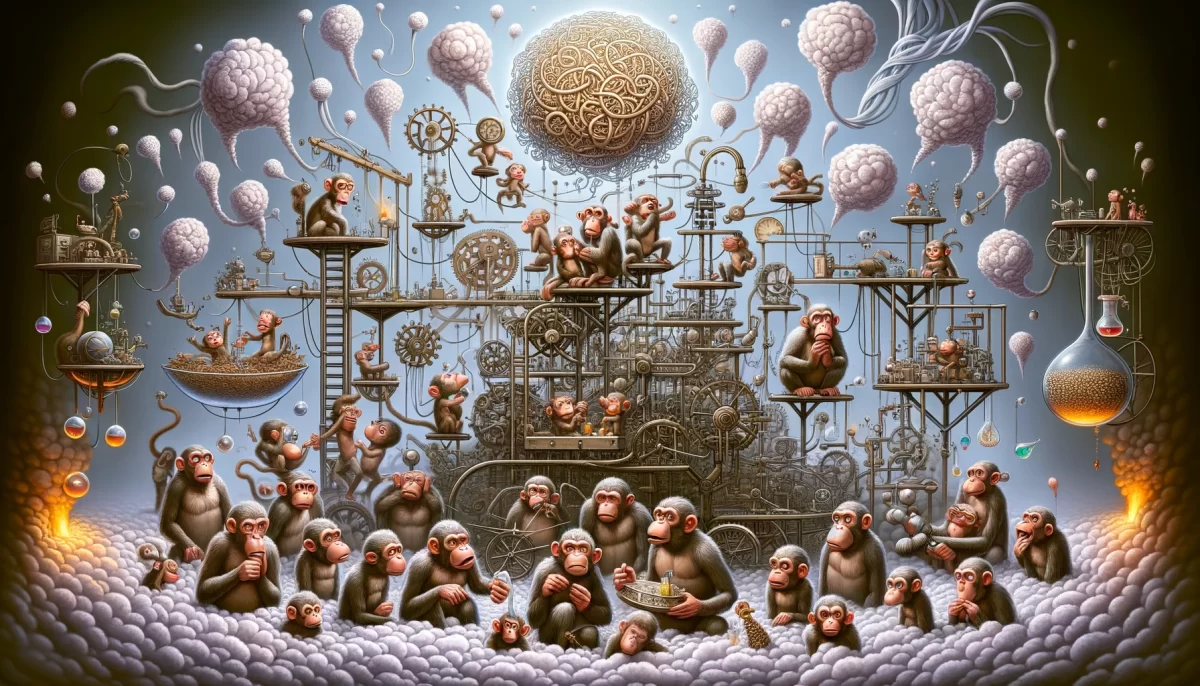
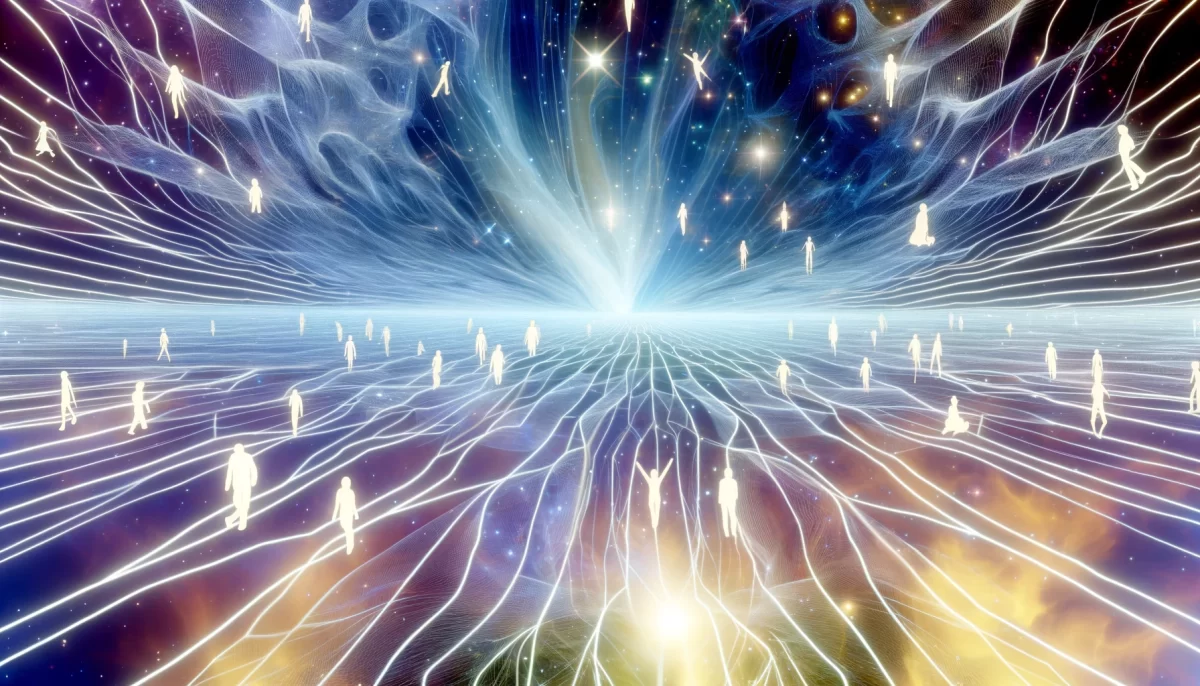
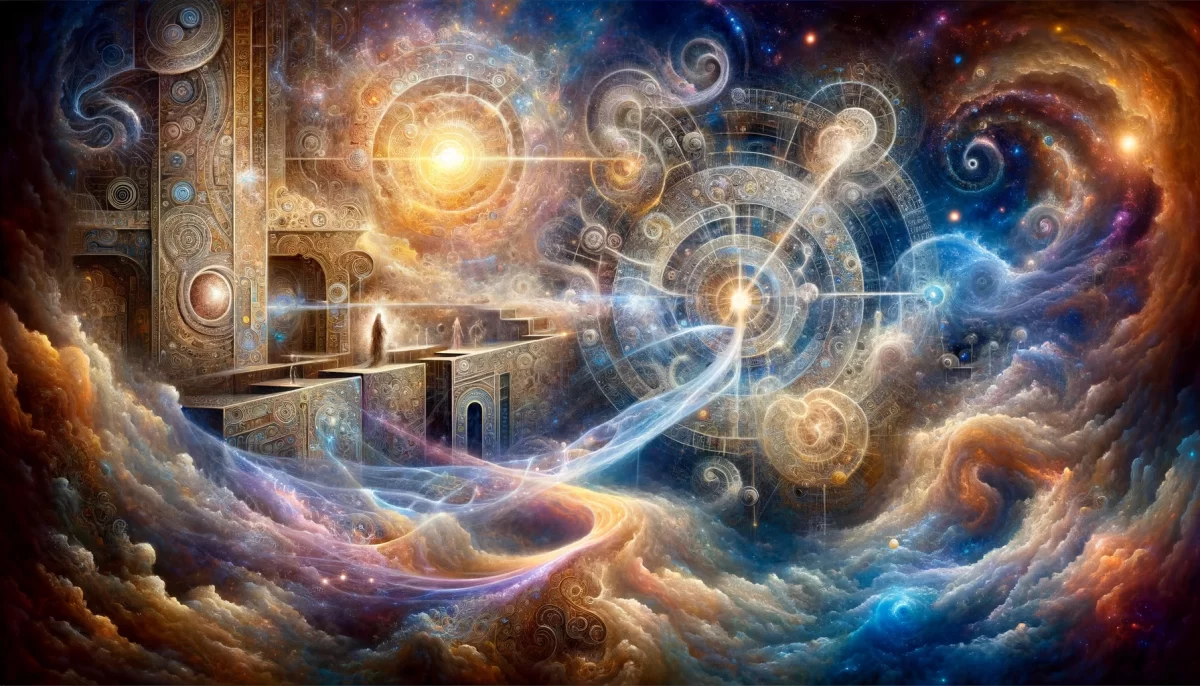
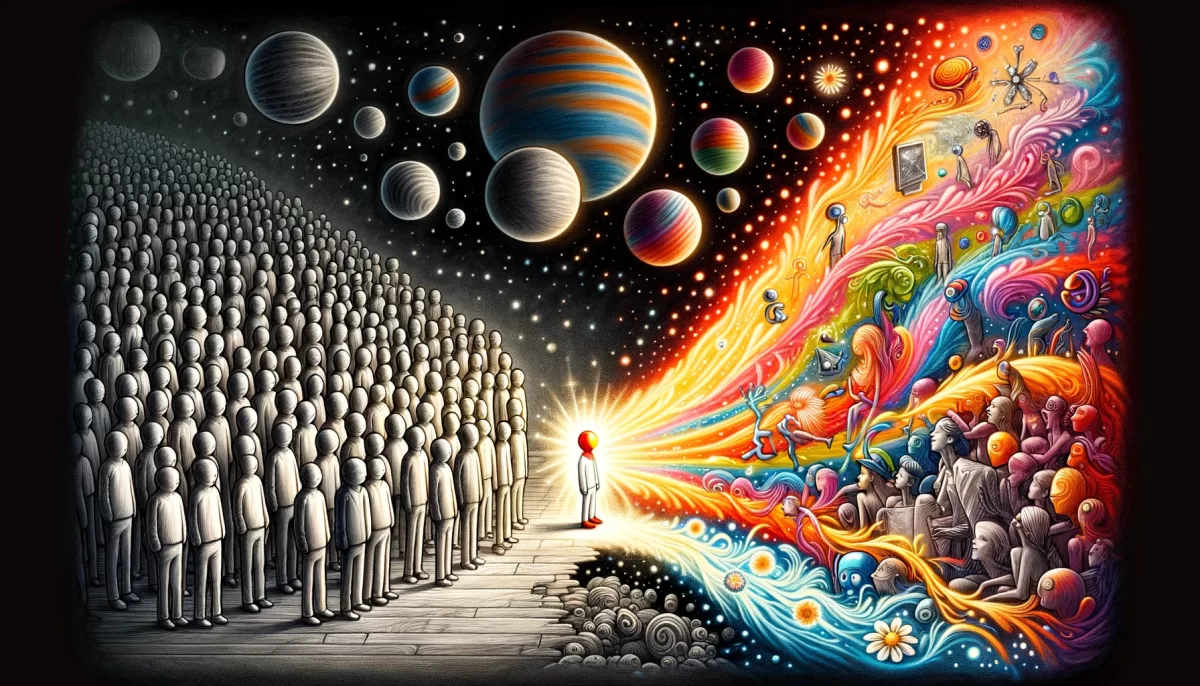
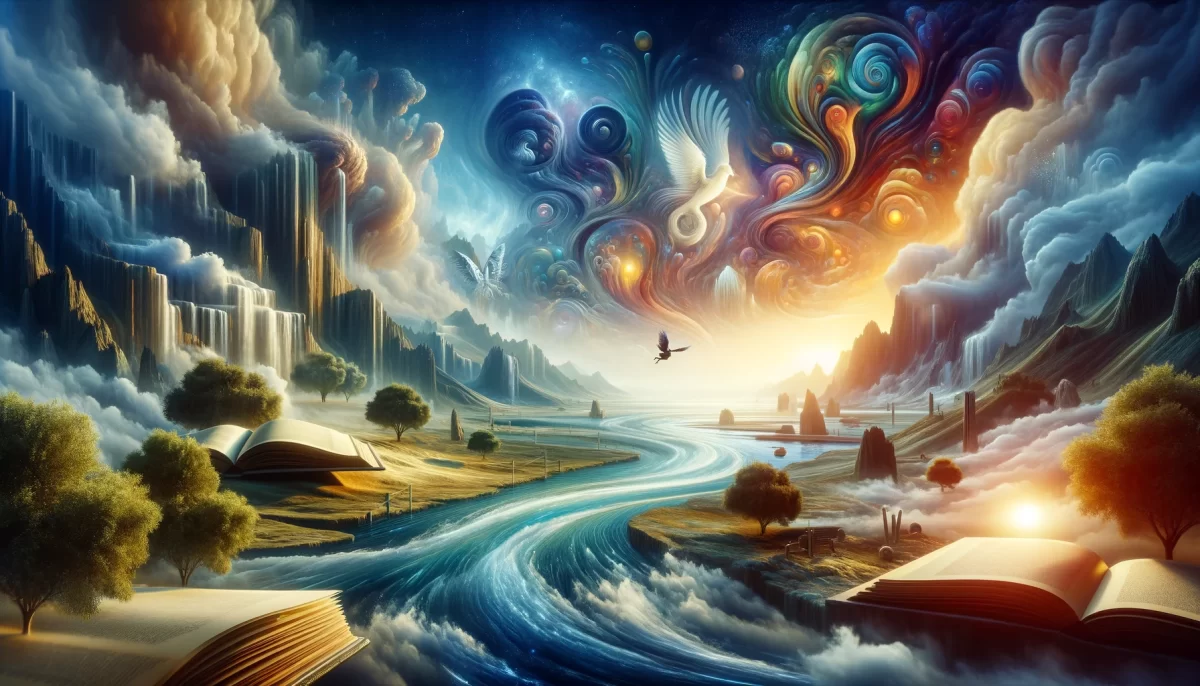
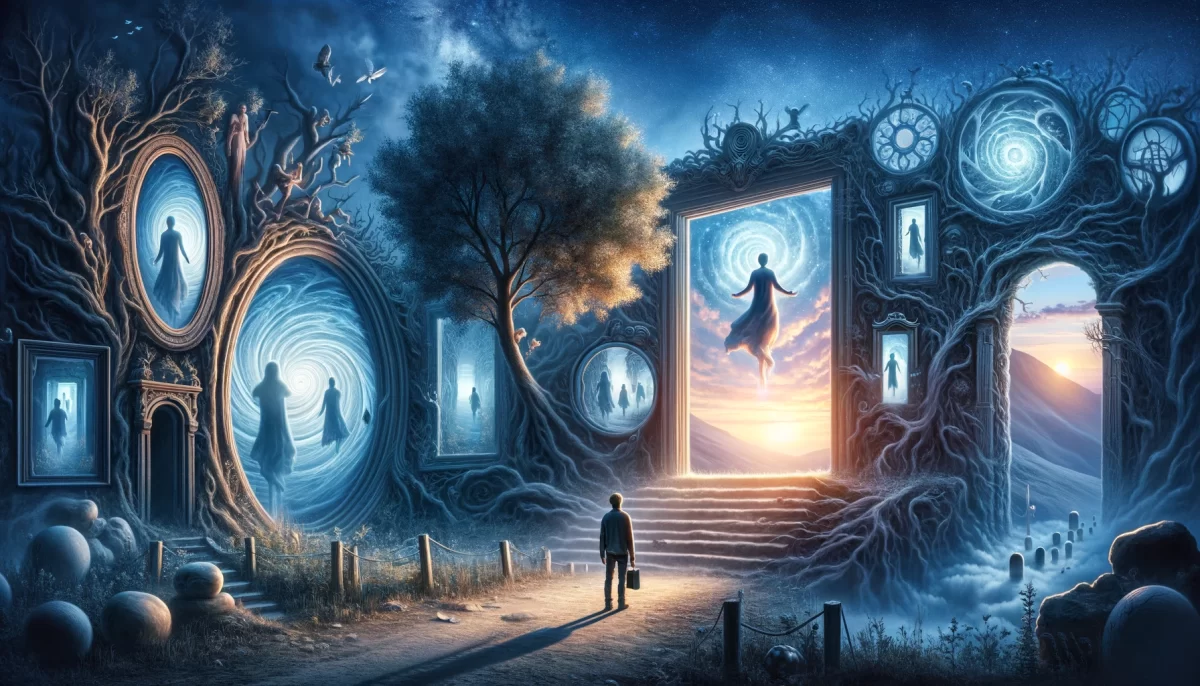
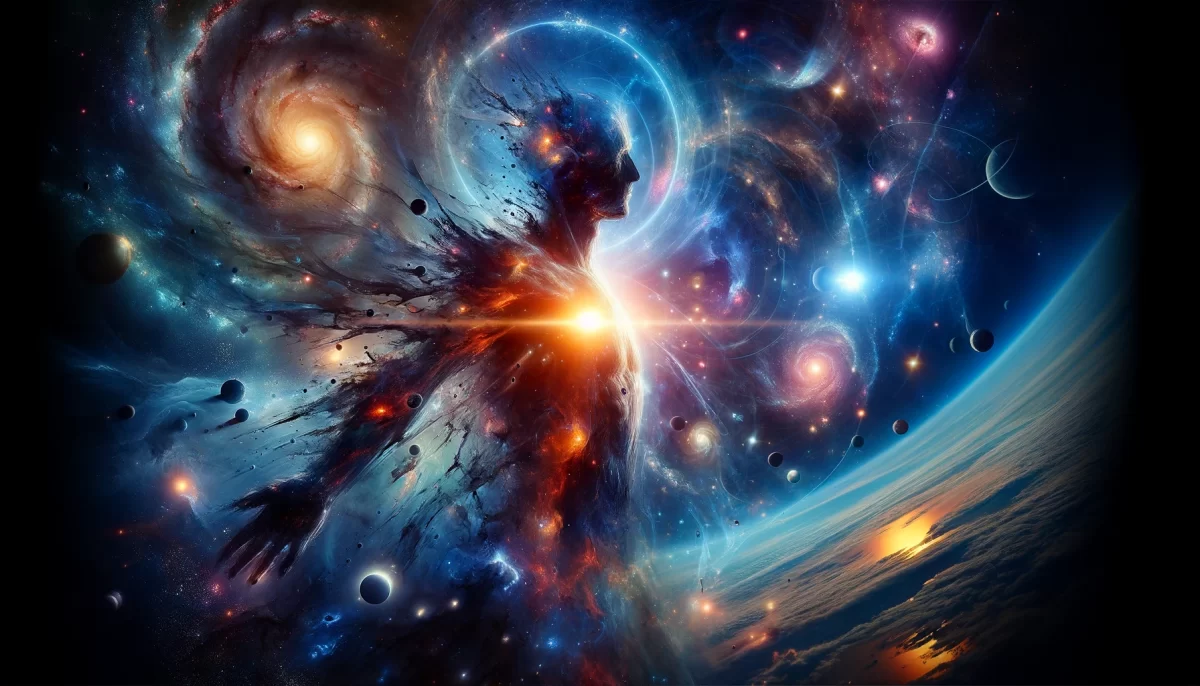
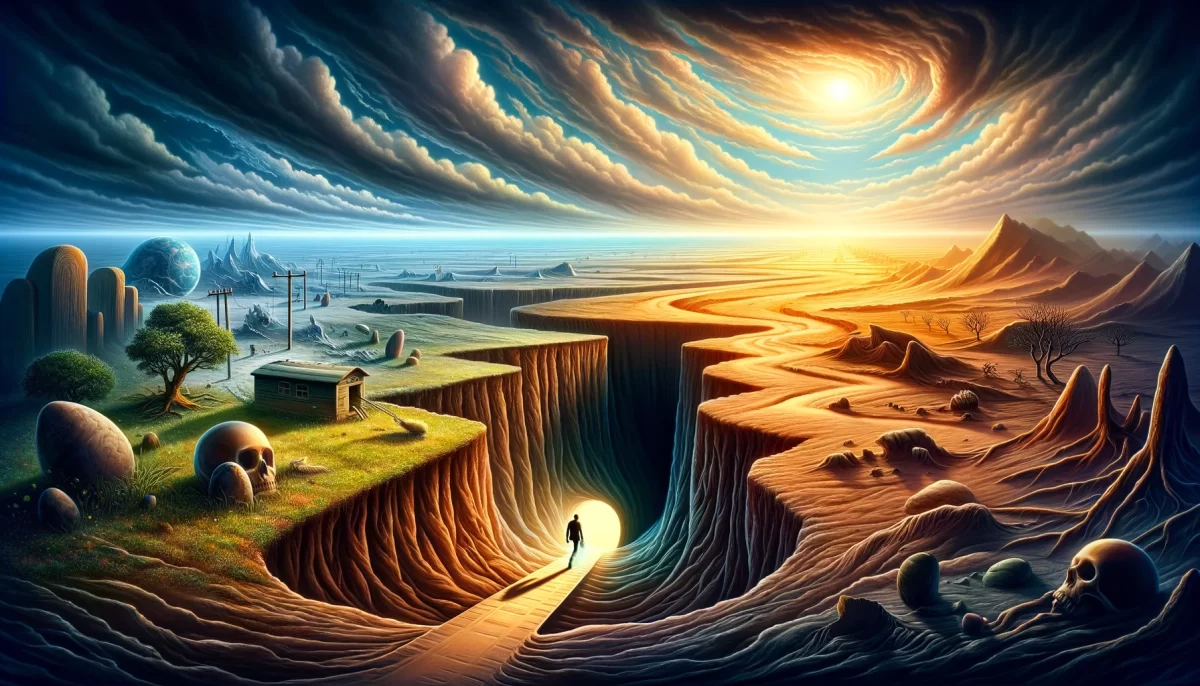
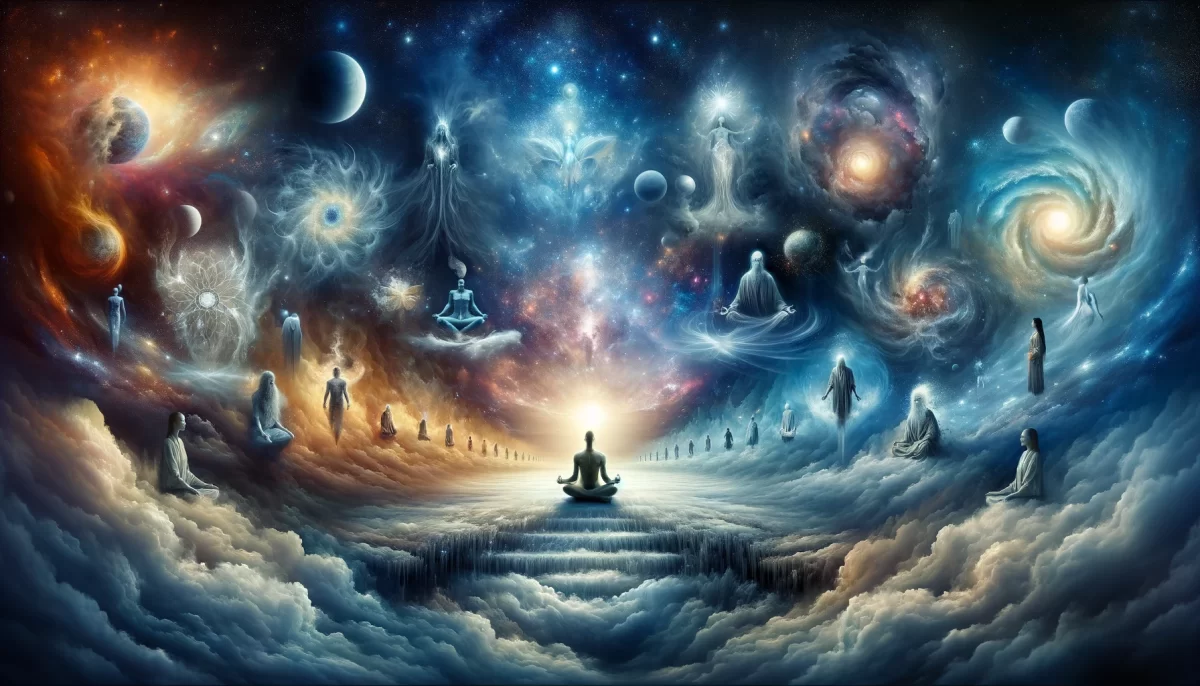
Leave a Reply